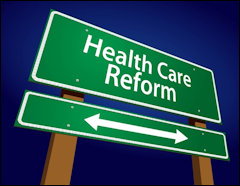While Medicaid expansion and Medicaid funding continue to command the attention of Virginia lawmakers, health care insurance for the rest of us is inching closer to the crisis stage. The cost of the average employer-provided health plan rose 5.2% in Virginia this year, considerably faster than the 3.6% rate for employer plans nationally.
Virginia workers also paid an average of 27% of the total cost of coverage through paycheck deductions, compared to 25% nationally, according to the Richmond Times-Dispatch. Statewide, the total health benefit cost averaged $12,368 per employee. The T-D based its numbers on a 2018 survey released by the Mercer human resources consulting firm.
Those numbers don’t include what employees are spending out of pocket as health plans increase their deductibles. The number of employers offering high-deductible, consumer-directed health plans increased nine percent nationally from 29% to 38% in 2018. Under high-deductible plans, employees must spend thousands of dollars of their own money before insurance reimbursements kick in.
For yet another year, the cost of employer-provided health care exceeds the rate of inflation plus wage growth. The increasing cost of health care represents a material erosion to households’ standard of living. And what are Virginia lawmakers doing about it? Nothing much that I can see.
The Bernie Bro’s answer is to adopt a single-payer health system, or Medicare for All. That would have the virtue of eliminating a huge layer of overhead and red tape associated with private health insurers. But it would introduce a different layer of overhead and red tape associated with the federal government insurer. Overhead savings, if any, would be a one-shot deal. The underlying dynamics of continual cost increases would not change.
Republicans say we should open up the healthcare system to insurance competition across state borders, encourage people to create Health Savings Accounts, and promote consumer-driven health care. All are good ideas, to my way of thinking, but they are only partial and incomplete solutions. They do nothing to address the utter lack of price transparency and the inability of consumers (patients) to shop around for better deals for discretionary procedures. Neither Democrat nor GOP proposals address the reality on the ground: that health care markets are increasingly dominated by hospital monopolies and cartels that protect turf and freeze out competitors. While there is considerable innovation in medicine and technology, there is very little innovation in health care delivery.
There is considerable good thinking in the academic world on how to create viable healthcare markets — or at least there was a decade ago when I studied this matter more closely — but few of them have percolated into the political sphere. Perhaps Virginia could do something totally radical and assemble a conclave to explore ideas for market-oriented healthcare. Something has to give. Current trends are not sustainable.


Leave a Reply
You must be logged in to post a comment.